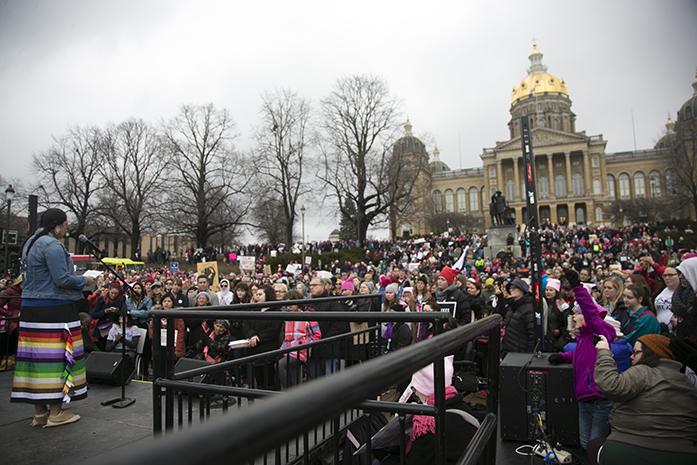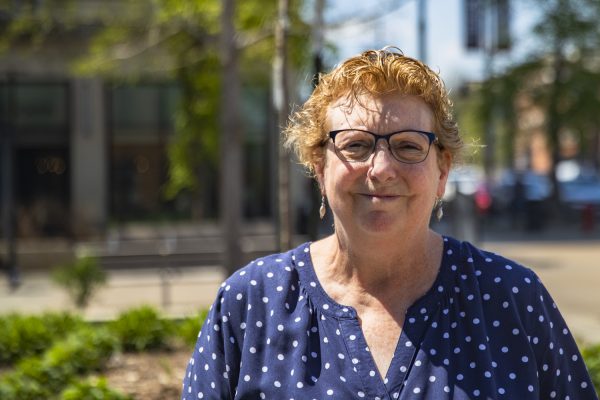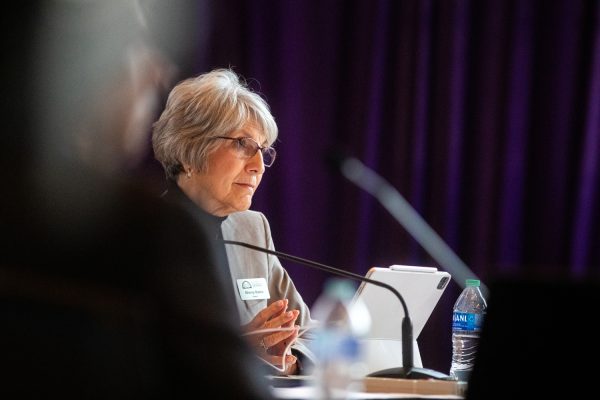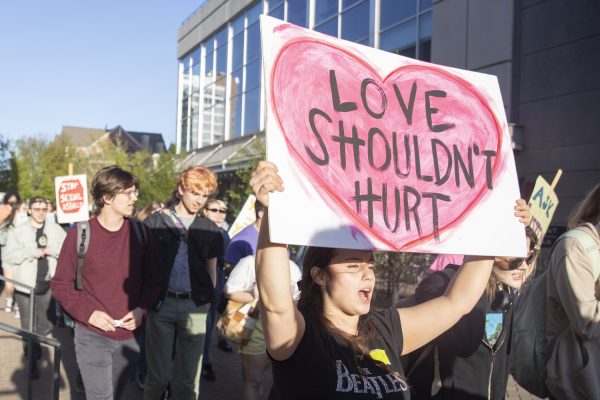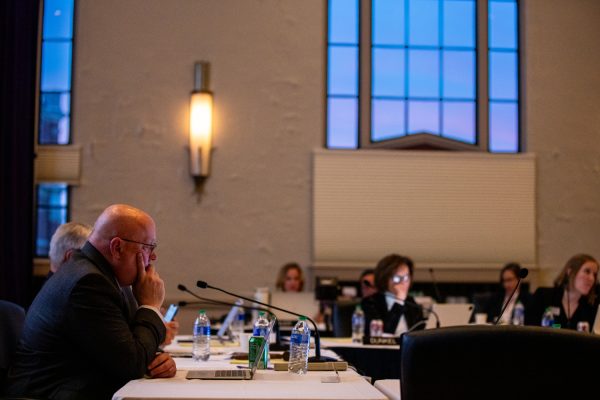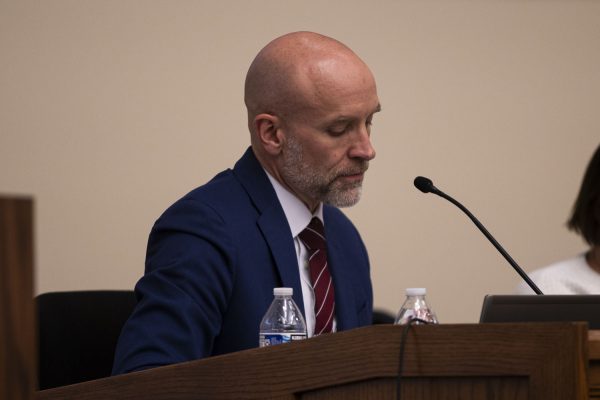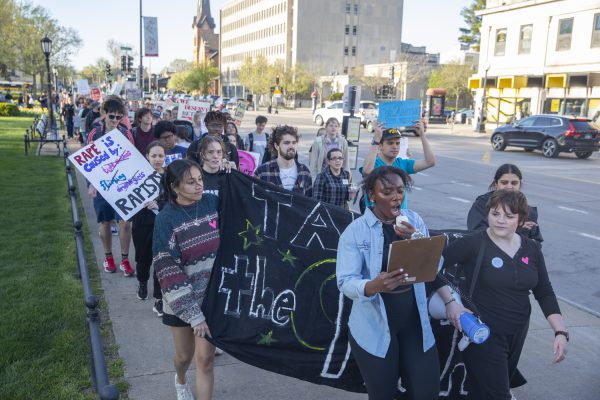Iowans march for rights
Iowans marched at the Iowa State Capitol to call upon each other to remain active and refusing to become complacent with the government’s actions.
The Daily Iowan; Photos by Josep
A woman cries while reading a speech during a protest in Des Moines on Saturday, Jan. 21, 2017. According to organizers an estimated 26,000 people attended the march and rally at the state capitol building. (The Daily Iowan/Joseph Cress)
January 22, 2017
DES MOINES — On the steps below the shining golden dome of the Iowa State Capitol, 26,000 people donning pink hats and toting posters gathered in support of the notion that “women’s rights are human rights.”
The Des Moines Women’s March was one of roughly 600 sister marches that took place in all 50 states and across the world.
Women, men, and gender nonconforming Iowans rallied to show solidarity in their hopes for a country that “takes care of every member,” said Jeff Hall, a library cataloguer at Iowa State University.
“I think it’s just important that people form a community and organize together and pick out the issue that they’re most passionate about and make a difference in that issue,” he said.
Three Democratic female state legislators, Rep. Kirsten Running-Marquardt, Rep. Liz Bennett, and Sen. Liz Mathis, all of whom represent Cedar Rapids, encouraged people to communicate with their lawmakers and advocate for their rights.
“I’m here today to fight for the American dream because I believe it’s big enough for all of us to have a share of it,” Bennett said.
State Sen. Matt McCoy, D-Des Moines, the first openly gay legislator in Iowa, spoke on behalf of the LGBT community, calling upon the people to take action and communicate with the Iowa Legislature as did his female colleagues in the days, months, and years after the march to sustain the movement instead of allowing it to become just a moment.
“Any injustice done to one is injustice done to all,” he said. “… We will fight to have our voices heard at the Statehouse, at the White House, and at Capitol Hill.”
University of Iowa senior Sara Lettieri, a Lebanese woman, attended the Des Moines march but felt that what she witnessed was more of a superficial display of activism.
“I was thinking the whole time about how these white women didn’t want fundamental change,” she said. “They just wanted Clinton to win. Had Hillary Clinton won the election, there would be no protest, and that shows that they’re not on my side; they’re not on our side.”
Lettieri said a majority of those in attendance were middle-aged white women who she believed didn’t truly care about the rights of transgender people, citizens from other minority groups, or all women — including nonwhite women. She doubted the likelihood of the protest bringing about tangible social reform and said the problem is systematic.
“Black women, trans women, queer women have been marching for how long for all of their own causes?” she said. “Black Lives Matter has been protesting for forever and black women are the head of that, and what change has come of that? … Everybody else has been protesting for however long and there’s been no reform.”
For many marchers, however — one of whom was UI student Ash Pierce — the act of simply being present was viewed as a key first step toward a progressive society that is inclusive of people of all ethnicities, genders, races, religions.
“I know for a lot of people this march was a very important first step in learning how to protest and act out and learn to change a government which for the longest time we’ve been fairly complacent with,” Pierce said. “A lot of us were privileged, and in this short period of progress we had, we felt like we didn’t have to do anything. Somebody else could, and now we all know it [the government] won’t.”



